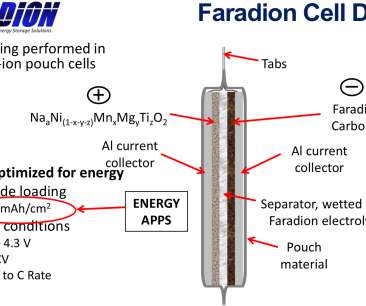Faradion and Phillips 66 to develop lower cost and higher-performing sodium-ion battery materials
Green Car Congress
FEBRUARY 26, 2021
UK-based Faradion, a developer of sodium-ion battery technology ( earlier post ), and Phillips 66 have launched a new technical collaboration to develop lower-cost and higher-performing anode materials for sodium-ion batteries. Earlier post.).




















Let's personalize your content